Home>Furniture>Outdoor Furniture>How To Keep Ants Off Of Patio Furniture
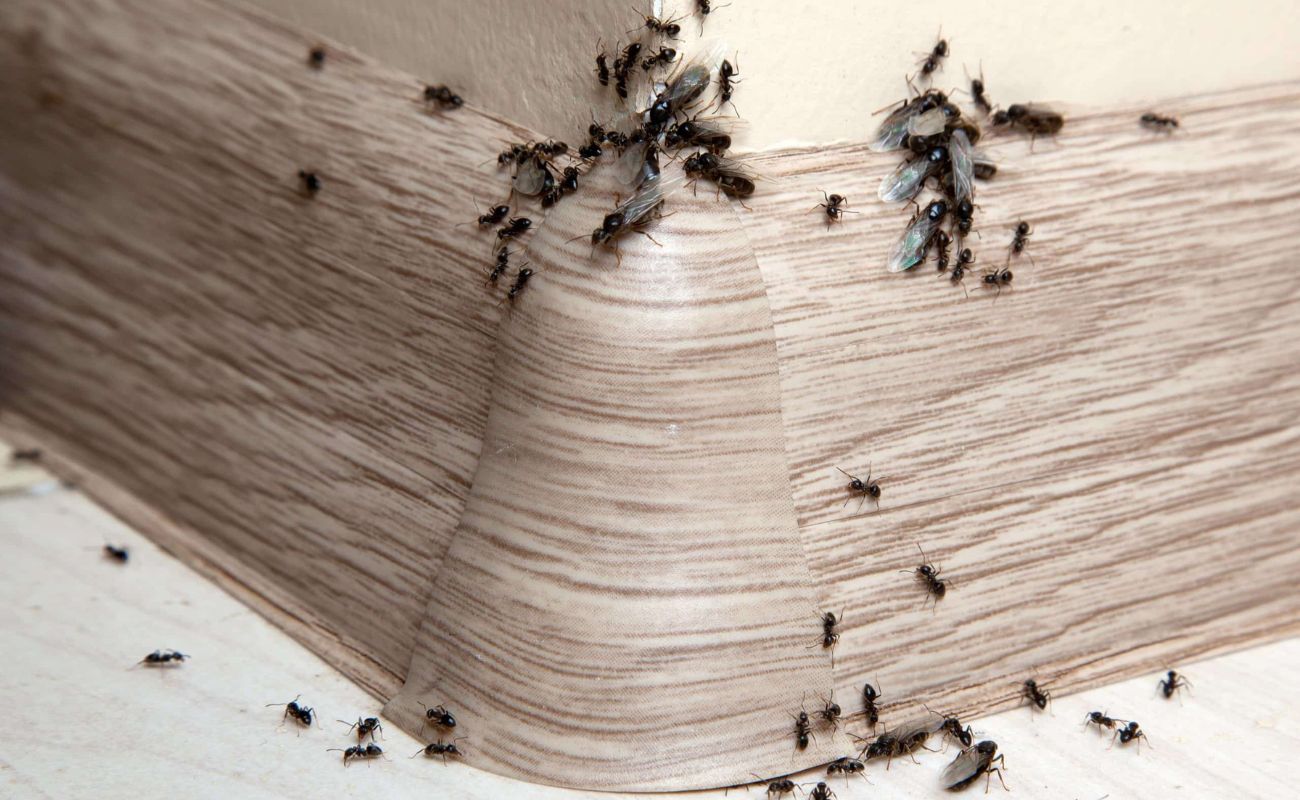

Outdoor Furniture
How To Keep Ants Off Of Patio Furniture
Modified: August 27, 2024
Learn effective techniques to keep ants off of your outdoor furniture and enjoy a pest-free patio experience. Prevent ant infestations with simple and practical tips.
(Many of the links in this article redirect to a specific reviewed product. Your purchase of these products through affiliate links helps to generate commission for Storables.com, at no extra cost. Learn more)
Introduction
Having a beautiful outdoor patio is a joy, especially when you have comfortable and stylish furniture to relax on. However, one unwelcome guest that can quickly put a damper on your outdoor experience is ants. These tiny pests have a knack for finding their way onto your patio furniture, making it an uninviting space. But fear not, as there are natural ways to repel ants and keep them off your patio furniture.
Ants are attracted to patio furniture for several reasons. First, they are always on the hunt for food, and any crumbs or spills left behind can be an easy target for them. Additionally, some ants are attracted to the scent of certain materials used in outdoor furniture, like wood or fabric. Finally, ants may see your patio furniture as a potential nesting site, seeking the protection and warmth it provides.
To repel ants from your patio furniture, you don’t need to resort to harmful chemicals or expensive solutions. There are plenty of natural remedies that are safe for you, your family, and the environment. These methods work by either masking the scent of the furniture or creating a barrier that ants find unpleasant to cross.
One effective natural repellent is vinegar. Ants are repelled by the strong smell of vinegar, so a simple vinegar solution can help keep them away from your furniture. Mix equal parts of water and white vinegar in a spray bottle, and then spray it directly onto the furniture. Pay special attention to areas where you’ve noticed ant activity, such as any cracks or crevices.
Another natural repellent that works wonders is using essential oils. Certain essential oils, like peppermint, cinnamon, and tea tree oil, are known for their strong scents that ants dislike. Mix a few drops of your chosen essential oil with water in a spray bottle and mist it onto the furniture. Not only will this keep ants away, but it will also leave your patio smelling fresh and inviting.
Lemon juice is another powerful natural repellent. Much like vinegar, ants are repelled by the acidic scent of lemon juice. Squeeze fresh lemon juice into a spray bottle, dilute it with water, and spray it on your patio furniture. Repeat this process regularly to maintain the repellent effect.
Cinnamon is not only a delightful spice in your kitchen, but it is also a great ant repellent. Sprinkle cinnamon powder directly on your patio furniture, paying attention to areas where you’ve seen ants. This will create a barrier that ants won’t want to cross, keeping them off your furniture effectively.
Coffee grounds are an excellent solution for repelling ants. Not only do they have a strong scent, but they also contain compounds that ants find unpleasant. Sprinkle used coffee grounds around your patio furniture and reapply them regularly. Not only will this keep ants away, but it will also act as a natural fertilizer for your plants.
Diatomaceous earth is a safe and natural substance that repels ants by dehydrating them. Sprinkle diatomaceous earth powder around your patio furniture and create a barrier that ants won’t want to cross. Just make sure to choose food-grade diatomaceous earth for safety.
In addition to these natural repellents, there are some preventive measures you can take to keep ants away from your patio furniture. Regularly clean your patio area and furniture to remove any crumbs or spills that might attract ants. Seal any cracks or crevices in your furniture that might serve as entry points for ants. Consider using ant baits or traps placed strategically around your patio to divert ants away from your furniture.
By implementing these natural methods and preventive measures, you can enjoy your outdoor space without the pesky presence of ants. Keep your patio furniture clean and use natural repellents to create an unfriendly environment for ants. With these simple steps, your patio will be a peaceful and ant-free retreat for relaxation and enjoyment.
Key Takeaways:
- Natural remedies like vinegar, essential oils, and coffee grounds can repel ants from patio furniture without harmful chemicals, keeping outdoor spaces pest-free and enjoyable.
- Regular cleaning, sealing cracks, and using physical barriers are effective preventive measures to keep ants away from patio furniture, creating a pleasant outdoor environment.
Read more: How To Keep Ants Off My Patio
Why Ants are Attracted to Patio Furniture
Ants can be incredibly persistent creatures, finding their way into our homes and outdoor spaces seemingly out of nowhere. When it comes to patio furniture, there are several reasons why ants are particularly attracted to it.
First and foremost, ants are always in search of food sources. Whether it’s crumbs from a recent BBQ or spills from a refreshing drink, any leftover morsels on your patio furniture can be a tempting treat for ants. These tiny creatures have a keen sense of smell and can quickly detect even the tiniest food particles.
In addition to seeking food, ants may also be drawn to the scent of the materials used in your patio furniture. For example, wooden furniture may emit natural oils or have a distinctive aroma that ants find enticing. Similarly, fabric or cushions on your outdoor seating may have absorbed food or beverage odors, making them attractive to foraging ants.
Furthermore, some ant species are known to be attracted to moisture. If your patio furniture has been exposed to rain or if there are water sources nearby, ants may be drawn to the dampness and seek refuge or establish nests within the furniture.
Additionally, ants may view your patio furniture as an ideal nesting site. The structures and crevices of your furniture provide protection from predators and the elements, making it an appealing spot for ants to establish their colonies. They may find tiny openings or cracks in the furniture and use them as entry points to build their nests.
It’s also essential to consider that ants leave behind chemical trails known as pheromones to communicate with one another. If an ant discovers a food source or a suitable nesting spot on your patio furniture, it will leave a trail of pheromones for other ants to follow. This creates a cycle where more ants are attracted to the furniture, continuing the infestation.
Overall, ants are attracted to patio furniture primarily because of the potential food sources, the scents emitted by the furniture materials, the presence of moisture, and the suitability of the furniture for nesting purposes. Understanding these factors can help you take proactive measures to repel ants and keep them from infiltrating your outdoor space. In the next sections, we’ll explore natural ways to repel ants from your patio furniture and prevent them from coming back.
Natural Ways to Repel Ants From Patio Furniture
Dealing with ants on your patio furniture can be frustrating, but you don’t have to resort to harsh chemicals to keep them at bay. There are plenty of natural solutions and remedies you can use to repel ants and discourage them from making your outdoor furniture their home.
One effective natural repellent is vinegar. Ants are repelled by the strong scent of vinegar, making it an excellent option for keeping them away from your patio furniture. Mix equal parts of water and white vinegar in a spray bottle and shake well. Spray the solution directly onto the furniture, paying extra attention to any areas where ants are frequently seen or suspected entry points. Reapply the vinegar spray as needed, especially after rain or cleaning, to maintain its effectiveness.
Essential oils are another powerful tool in repelling ants. Certain essential oils like peppermint, cinnamon, and tea tree oil are known for their strong scents that ants dislike. To make an essential oil spray, add a few drops of your chosen essential oil to a spray bottle filled with water. Shake well and spray the mixture onto your patio furniture. Focus on areas where ants are most active or where you want to create a barrier. Refresh the spray regularly to maintain its potency.
Lemon juice is a natural ant repellent with its acidic properties. Squeeze fresh lemon juice into a spray bottle and dilute it with water. Spray the lemon juice solution directly onto your patio furniture. The strong citrus scent will deter ants from approaching. Remember to reapply the solution every few days or after rainfall for maximum effect.
Cinnamon is not only a popular spice in the kitchen but also a potent ant repellent. Sprinkle ground cinnamon around your patio furniture, paying close attention to areas where ants enter or congregate. The strong smell of cinnamon creates a barrier that ants will avoid crossing. Reapply the cinnamon as needed, especially after rain or if you notice ants returning.
Coffee grounds can also be used in repelling ants. Sprinkle used coffee grounds around your patio furniture and areas where ants are present. The strong aroma of coffee will deter ants from coming near. Additionally, coffee grounds can act as a natural fertilizer for your plants, making it a double benefit.
Diatomaceous earth is a safe and natural substance that effectively repels ants. Sprinkle food-grade diatomaceous earth around your patio furniture, paying attention to cracks, crevices, and other entry points where ants may be crawling. Diatomaceous earth dehydrates the ants and disrupts their ability to navigate, effectively repelling them from your furniture. Reapply the diatomaceous earth after rain or cleaning to maintain its effectiveness.
By using these natural remedies, you can protect your patio furniture from pesky ant infestations without resorting to harmful chemicals. Experiment with different solutions to find what works best for your situation. Remember to regularly clean your patio furniture and remove any food sources to prevent future ant attractions.
Using Vinegar to Repel Ants
Vinegar is a versatile and effective natural remedy that can be used to repel ants from your patio furniture. Ants are repelled by the strong scent of vinegar, making it an excellent solution for keeping them at bay.
To repel ants from your patio furniture using vinegar, follow these simple steps:
1. Create a vinegar solution: Mix equal parts of water and white vinegar in a spray bottle. Shake well to ensure the ingredients are thoroughly combined.
2. Identify problem areas: Take a close look at your patio furniture and identify areas where you have noticed ant activity or suspect entry points. This could include cracks, crevices, seams, or any areas where ants frequently crawl.
3. Apply the vinegar solution: Spray the vinegar solution directly onto the problem areas of your patio furniture. Be sure to cover all visible spots where ants may gather or enter. The strong scent of vinegar will deter ants from approaching those areas, creating a barrier they won’t want to cross.
4. Reapply as needed: Depending on the weather conditions and the level of ant activity in your area, you may need to reapply the vinegar solution regularly. Rain or regular cleaning may wash away the solution, reducing its effectiveness. Reapply after rain or whenever you notice ants returning to your patio furniture.
5. Clean up spills and crumbs: In addition to using vinegar as a repellent, it’s essential to practice good housekeeping on your patio. Clean up any food spills or crumbs promptly, as these can attract ants, even with vinegar treatment. By eliminating food sources, you will make your patio furniture less appealing to ants.
6. Be cautious with porous materials: While vinegar is generally safe to use on most patio furniture materials, it’s important to exercise caution with porous surfaces like natural stone or certain types of wood. Test the vinegar solution on a small, inconspicuous area first to ensure it doesn’t cause any discoloration or damage. If in doubt, consult the manufacturer’s guidelines or consider using an alternative natural repellent.
By using vinegar to repel ants from your patio furniture, you are taking a natural and safe approach to pest control. Vinegar is readily available, affordable, and environmentally friendly. It not only repels ants but also acts as a disinfectant, helping to keep your patio furniture clean and free from harmful bacteria.
Remember, along with using vinegar, it’s important to address other factors that might attract ants, such as removing food sources and practicing good hygiene on your patio. By implementing these measures, you can enjoy a pest-free outdoor space and prolong the lifespan of your patio furniture.
Using Essential Oils to Repel Ants
Essential oils are not only known for their pleasant scents but also for their ability to repel ants naturally. Ants dislike certain strong-smelling oils, making them an excellent choice for keeping these pesky insects away from your patio furniture. Here’s how you can use essential oils effectively:
1. Choose the right essential oils: Certain essential oils are particularly effective in repelling ants. Peppermint, cinnamon, tea tree, citrus (like lemon or orange), and eucalyptus oils are commonly used for this purpose. These oils have strong scents that ants find repulsive, making them ideal for keeping them at bay.
2. Dilute the oil: Essential oils should always be diluted before use on outdoor furniture. Mix a few drops of your chosen oil with water in a spray bottle. The exact ratio may vary depending on the strength of the oil, but a general guideline is around 10-15 drops per ounce of water. Shake the spray bottle well to ensure the oil is thoroughly mixed with water.
3. Target problem areas: Inspect your patio furniture for areas where ants gather or enter. Pay close attention to cracks, crevices, seams, or any spots where you often see ant activity. These areas will be your main focus when applying the essential oil solution.
4. Spray the solution: Spray the diluted essential oil solution directly onto the problem areas of your patio furniture. Ensure thorough coverage of the targeted spots, creating a barrier that ants will want to avoid. Reapply the solution as needed, especially after rain or regular cleaning, to maintain its potency.
5. Refresh the scent: Over time, the scent of the essential oil may fade. To enhance its effectiveness, you can periodically refresh the scent on your patio furniture. Lightly mist the furniture with the diluted essential oil solution, focusing on high-risk areas or whenever you notice ant activity.
6. Experiment with different oils: Different ant species may respond differently to various essential oils. If one oil seems ineffective in repelling ants, try using a different one. You can also create a blend of oils to create a more potent repellent. Be sure to follow proper dilution guidelines and avoid using undiluted essential oils directly on your furniture or skin.
Remember, while essential oils are generally safe for use, some individuals may have sensitivities or allergies. If you or anyone in your household experiences any adverse reactions, discontinue use immediately. It’s also essential to avoid contact with eyes and keep essential oils out of reach of children.
Using essential oils to repel ants provides a natural and pleasant-smelling solution for your patio furniture. In addition to repelling ants, these oils can also create a refreshing and inviting atmosphere on your patio. By incorporating essential oils into your pest control routine, you can enjoy a bug-free and fragrant outdoor space.
Read more: How To Keep Squirrels Off Patio Furniture
Using Lemon Juice to Repel Ants
Lemon juice is a natural and effective way to repel ants from your patio furniture. Ants are repelled by the acidic scent of lemon juice, making it an excellent solution for keeping them away. Here’s how you can use lemon juice effectively:
1. Squeeze fresh lemon juice: Start by squeezing fresh lemon juice into a spray bottle. If desired, you can dilute the lemon juice with water, but the undiluted juice will have a stronger impact on repelling ants. However, if you have sensitive furniture surfaces, diluting the lemon juice can help prevent any potential damage or discoloration.
2. Identify problem areas: Inspect your patio furniture for areas where ants are frequently seen or suspected entry points. Look for cracks, crevices, seams, or any spots where ants may gather or crawl.
3. Apply the lemon juice solution: Spray the lemon juice solution directly onto the problem areas of your patio furniture. Ensure thorough coverage, paying extra attention to the high-risk areas where ants are active. The strong citrus scent will act as a deterrent and discourage ants from approaching.
4. Reapply the solution: The effectiveness of lemon juice as a repellent may diminish over time, especially if exposed to rain or regular cleaning. Reapply the lemon juice solution every few days or after rainfall to keep the scent fresh and potent.
5. Clean up spills and crumbs: Along with using lemon juice, it’s essential to practice good hygiene on your patio. Regularly clean your furniture to remove any food spills, crumbs, or other attractants that may entice ants, even with the lemon juice treatment. By eliminating food sources, you will make your patio furniture less appealing to ants.
6. Test on a small area: Before applying lemon juice to your entire patio furniture, it’s a good idea to test it on a small, inconspicuous area first. This will help ensure that the lemon juice doesn’t cause any damage or discoloration to the material.
Using lemon juice to repel ants is a natural and safe option for keeping these pests away from your patio furniture. Lemon juice not only repels ants but also leaves a refreshing citrus scent that can enhance the ambiance of your outdoor space.
Remember, lemon juice may not completely eliminate an ant infestation. It serves as a deterrent to keep ants at bay. If you have a severe ant problem, it may be necessary to combine lemon juice with other natural remedies or consult a professional pest control service. By taking a proactive approach and using lemon juice as part of your ant-prevention strategy, you can enjoy a pest-free patio and extend the lifespan of your outdoor furniture.
Sprinkle cinnamon, black pepper, or cayenne pepper around the legs of your patio furniture to keep ants away. Ants dislike the strong smell and will avoid crossing the barrier.
Using Cinnamon to Repel Ants
Cinnamon is not just a delightful spice in your kitchen; it can also be an effective natural repellent against ants. The strong scent of cinnamon acts as a deterrent, making it an ideal solution for keeping ants away from your patio furniture. Here’s how you can use cinnamon effectively:
1. Sprinkle ground cinnamon: Start by sprinkling ground cinnamon directly onto your patio furniture. Focus on areas where ants are frequently seen or suspected entry points, such as cracks, crevices, or any spots where ants crawl. The strong smell of cinnamon creates a barrier that ants are reluctant to cross.
2. Pay attention to problem areas: Ants often have specific areas they prefer to travel or enter. Pay extra attention to spots on your furniture where ants are commonly found, as well as areas close to your patio where ants might be coming from.
3. Reapply as needed: Over time, the scent of cinnamon may fade or be washed away by rain or regular cleaning. To maintain its effectiveness, periodically reapply ground cinnamon to your patio furniture, especially after instances of rain or when you notice ants returning. This will ensure a continuous barrier that deters ants from approaching.
4. Consider cinnamon oil or sticks: If you prefer a less messy option, you can use cinnamon oil or cinnamon sticks as a repellent. Soak cotton balls or a cloth in cinnamon oil and place them strategically around your patio furniture, focusing on areas where ants are active. Alternatively, you can scatter cinnamon sticks around your furniture or create a perimeter to keep ants at bay.
5. Combine cinnamon with other natural remedies: Cinnamon is more effective when combined with other natural ant repellents. Consider using a mixture of cinnamon powder and other substances like cayenne pepper or coffee grounds for enhanced repellent properties. This combination can create a powerful deterrent that keeps ants away from your patio furniture.
6. Be cautious with sensitive surfaces: While cinnamon is generally safe for most surfaces, it’s essential to exercise caution with porous materials or furniture finishes. Test cinnamon on a small, inconspicuous area before applying it to the entire surface to ensure that it doesn’t cause any discoloration or damage.
Using cinnamon to repel ants is a natural, safe, and pleasant-smelling solution for your patio furniture. Cinnamon not only helps keep ants away but also adds a warm and inviting aroma to your outdoor space.
Remember, cinnamon is a repellent, but it may not completely eliminate an ant infestation. If you have a severe ant problem, you may need to combine cinnamon with other natural remedies or seek professional pest control assistance. By incorporating cinnamon into your ant prevention strategy and regularly maintaining a barrier, you can enjoy a pest-free patio and protect your furniture from ant infestations.
Using Coffee Grounds to Repel Ants
If you’re looking for a natural and readily available solution to repel ants from your patio furniture, look no further than your morning coffee grounds. Coffee grounds can be an effective and environmentally friendly way to deter ants and keep them away from your outdoor space. Here’s how you can use coffee grounds effectively:
1. Save your used coffee grounds: Instead of tossing them in the trash, save your used coffee grounds. Allow them to cool and dry out a bit before using them for pest control.
2. Sprinkle coffee grounds around problem areas: Begin by sprinkling the coffee grounds around the perimeter of your patio furniture or any areas where you’ve witnessed ant activity. Pay close attention to cracks, crevices, or entry points where ants can crawl onto the furniture. The strong aroma of coffee will act as a natural repellent, making ants hesitant to approach.
3. Reapply regularly: Coffee grounds, like any natural remedy, may lose their potency over time, especially when exposed to rain or cleaning. Make it a habit to regularly reapply coffee grounds around your patio furniture, especially after rainfall or when you notice ants returning. This will help maintain the scent and keep ants at bay.
4. Use fresh coffee grounds on ant hills: If you’ve identified ant hills near your patio furniture, scatter fresh coffee grounds directly on them. The strong smell of the fresh coffee will discourage ants and may even disrupt their ability to communicate and navigate effectively.
5. Consider coffee grounds as a barrier: Along with using coffee grounds directly on your patio furniture, you can also create a barrier around the perimeter. Scatter a thick layer of coffee grounds around the furniture, forming a boundary that ants are reluctant to cross. This can further prevent ants from accessing your furniture and creating nests.
6. Mixture with other substances: For added effectiveness, you can mix coffee grounds with other natural repellents like cinnamon or cayenne pepper. The combination of scents can strengthen the ant-repelling properties.
It’s important to note that coffee grounds may not completely eliminate an ant infestation. However, they are an eco-friendly and easy-to-use solution for repelling ants and reducing their presence around your patio furniture. Alongside using coffee grounds, remember to practice good hygiene by keeping your patio clean and free of food debris to discourage ants from seeking out food sources.
By harnessing the power of coffee grounds, you can protect your patio furniture from ants naturally while enjoying the aromatic benefits of coffee. Embrace sustainability and repel ants with a simple resource that you likely have readily available in your kitchen.
Using Diatomaceous Earth to Repel Ants
Diatomaceous earth is a natural and effective remedy that can help you repel ants from your patio furniture. Made from the fossilized remains of diatoms, tiny aquatic organisms, diatomaceous earth is a powdery substance that can be used to create a barrier that ants find unappealing. Here’s how you can use diatomaceous earth effectively:
1. Choose food-grade diatomaceous earth: It’s crucial to select food-grade diatomaceous earth, as it is safe for use around humans, pets, and plants. This type of diatomaceous earth has undergone a purification process and does not contain harmful additives or chemicals.
2. Identify problem areas: Inspect your patio furniture for areas where ants are frequently seen or suspected entry points. Focus on cracks, crevices, seams, or any spots where ants may crawl or nest.
3. Apply diatomaceous earth: Sprinkle a thin, even layer of diatomaceous earth over the problem areas of your patio furniture. Target the areas where ants are most active or where you suspect they might be entering. Be sure to cover the cracks and crevices thoroughly.
4. Reapply after rain or cleaning: Diatomaceous earth loses its effectiveness when wet. If it rains or you clean your patio furniture, reapply the diatomaceous earth to ensure ongoing protection against ants. Regular reapplication is necessary to maintain a barrier that ants find unattractive.
5. Be cautious with fine furniture finishes: Diatomaceous earth is abrasive, so be mindful when applying it to delicate or finely finished furniture. Test it on a small, inconspicuous area first to ensure it does not cause any damage or scratches. If in doubt, consult the manufacturer’s guidelines or consider using alternative methods to repel ants.
6. Keep diatomaceous earth dry: Diatomaceous earth only works when it is dry, as it relies on its abrasive nature to deter ants. If it becomes wet or clumps together, it will lose its effectiveness. Place it in dry areas, away from water sources or areas prone to moisture accumulation.
Diatomaceous earth works by dehydrating ants, causing them to die off. As ants crawl through the powder, the tiny abrasive particles damage their exoskeletons, leading to fluid loss and ultimately death. The porous nature of diatomaceous earth also makes it an effective desiccant against many other pests, making it a versatile option for natural pest control.
Keep in mind that diatomaceous earth does not discriminate between pests, so use it only in areas where ants are causing problems. It’s also important to note that diatomaceous earth is not a quick fix. It may take time for it to have an effect on the ant population, so be patient and consistent with the application.
By using food-grade diatomaceous earth, you can effectively repel ants from your patio furniture in a safe and natural way. It offers a long-lasting solution without the need for harsh chemicals or pesticides, making it an ideal choice for those seeking eco-friendly pest control options.
Read more: How To Keep Spiders Off Patio Furniture
Preventive Measures to Keep Ants Away from Patio Furniture
Taking preventive measures is key to keeping ants away from your patio furniture in the long term. By implementing these measures, you can create an environment that is less attractive to ants and discourage them from infesting your outdoor space. Here are some effective preventive measures to consider:
1. Clean your patio regularly: Ants are attracted to food sources, so keeping your patio clean and free of food debris is essential. Regularly sweep or vacuum your patio to remove any crumbs, spills, or leftover food that could attract ants. Pay attention to the areas surrounding your furniture, as well as nearby food preparation areas or trash cans.
2. Seal cracks and crevices: Ants can find their way into tiny openings, so inspect your patio furniture for any cracks, crevices, or gaps where ants may enter. Use caulk, putty, or sealant to seal these openings and prevent ants from accessing the interior of your furniture. Pay attention to areas where different materials meet, such as joints and seams.
3. Create a barrier: Consider placing a physical barrier, such as a line of adhesive barrier tape or a shallow moat filled with soapy water, around the legs of your patio furniture. This can prevent ants from climbing up the legs and reaching the furniture.
4. Elevate furniture legs: Another effective preventive measure is to elevate the legs of your patio furniture. Use furniture risers, sturdy blocks, or small cups filled with water to lift the legs off the ground. This makes it harder for ants to climb up and access your furniture.
5. Use ant-repellent plants: Some plants have natural ant-repellent properties. Consider placing potted plants like mint, lavender, rosemary, or marigold near your patio furniture. These plants have scents that ants dislike, helping to deter them from approaching. However, be mindful of placing these plants close to seating areas if strong smells may be bothersome to humans.
6. Store and dispose of food properly: When dining or entertaining on your patio, be sure to store food properly in tightly sealed containers, rather than leaving it exposed. Additionally, dispose of any leftover food or food waste promptly and clean up any spills to avoid attracting ants.
7. Eliminate standing water sources: Ants are attracted to moisture, so it’s important to eliminate any standing water sources near your patio furniture. Ensure that your patio area has proper drainage, and fix any leaks or water accumulation issues. Regularly empty and clean birdbaths, pet water bowls, or other water features to prevent ants from gathering around them.
8. Use ant baits or traps strategically: If you’re dealing with an ant infestation or want to take extra precautionary measures, you can use ant baits or traps placed strategically around your patio. These baits attract ants and contain a substance that they carry back to their colony, ultimately eliminating the entire nest.
By implementing these preventive measures, you can significantly reduce the chances of ants infesting your patio furniture. Regular cleaning, sealing openings, creating barriers, and employing natural deterrents will make your outdoor space less appealing to ants. With consistent effort, you can enjoy your patio furniture without the nuisance of ant invasions.
Conclusion
Keeping ants away from your patio furniture is essential to maintaining a pleasant outdoor space where you can relax and enjoy the fresh air. By utilizing natural remedies and taking preventive measures, you can effectively repel ants and deter them from infesting your furniture. From using vinegar and essential oils to cinnamon, lemon juice, coffee grounds, and diatomaceous earth, there are plenty of eco-friendly options to choose from.
Vinegar, with its strong scent, can be sprayed directly onto your patio furniture to repel ants. Essential oils like peppermint, cinnamon, and tea tree oil offer a pleasant-smelling alternative that ants find unpleasant. Lemon juice, with its acidic properties, acts as a deterrent to ants. Cinnamon, in its powdered form, creates a barrier that ants are reluctant to cross. Coffee grounds not only offer a strong aroma but also provide a natural fertilizer for your plants. Diatomaceous earth acts as a physical barrier and dehydrates ants, effectively repelling them.
In addition to these natural remedies, implementing preventive measures is crucial in keeping ants away from your patio furniture for the long term. Regularly cleaning your patio, sealing cracks and openings, using physical barriers, elevating furniture legs, and practicing proper food storage and disposal are all effective preventive steps. You can also consider incorporating ant-repellent plants and eliminating standing water sources to create an environment less attractive to ants.
Remember, it may take some trial and error to find the most suitable solution for your particular ant problem. Different ant species and environmental factors can affect the effectiveness of the remedies. It’s important to be patient and consistent with your chosen method, reapplying as needed and addressing any new ant activity promptly.
By following these strategies, you can enjoy an ant-free outdoor experience and prolong the lifespan of your patio furniture. Not only are these natural solutions effective, but they are also safer alternatives to harsh chemicals, promoting a healthier environment for you, your family, and the planet.
Create your own combination of remedies and preventive measures based on your specific needs and preferences. With a little effort and creativity, you can create a space that is welcoming and free of ant infestations, allowing you to fully embrace the beauty and tranquility of your outdoor oasis.
Frequently Asked Questions about How To Keep Ants Off Of Patio Furniture
Was this page helpful?
At Storables.com, we guarantee accurate and reliable information. Our content, validated by Expert Board Contributors, is crafted following stringent Editorial Policies. We're committed to providing you with well-researched, expert-backed insights for all your informational needs.

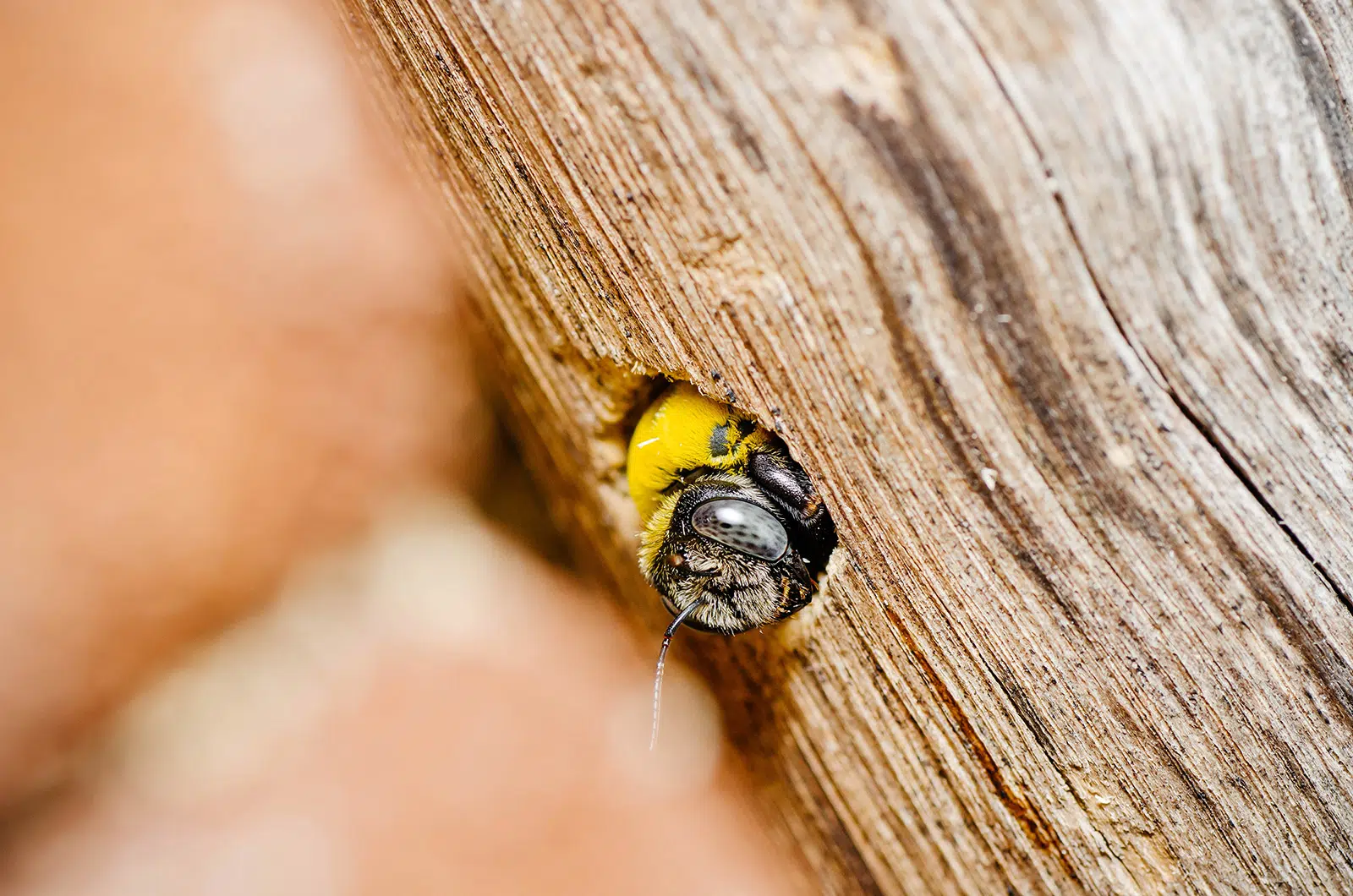





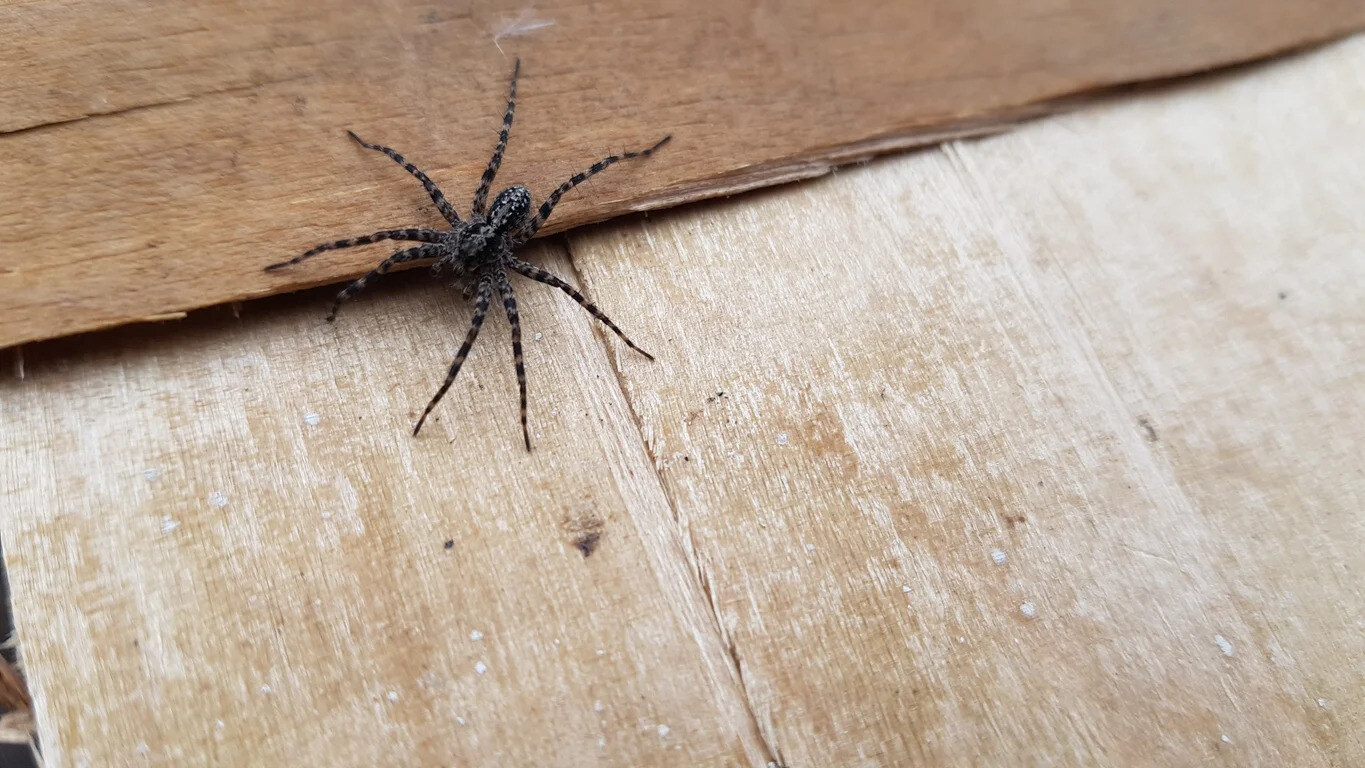
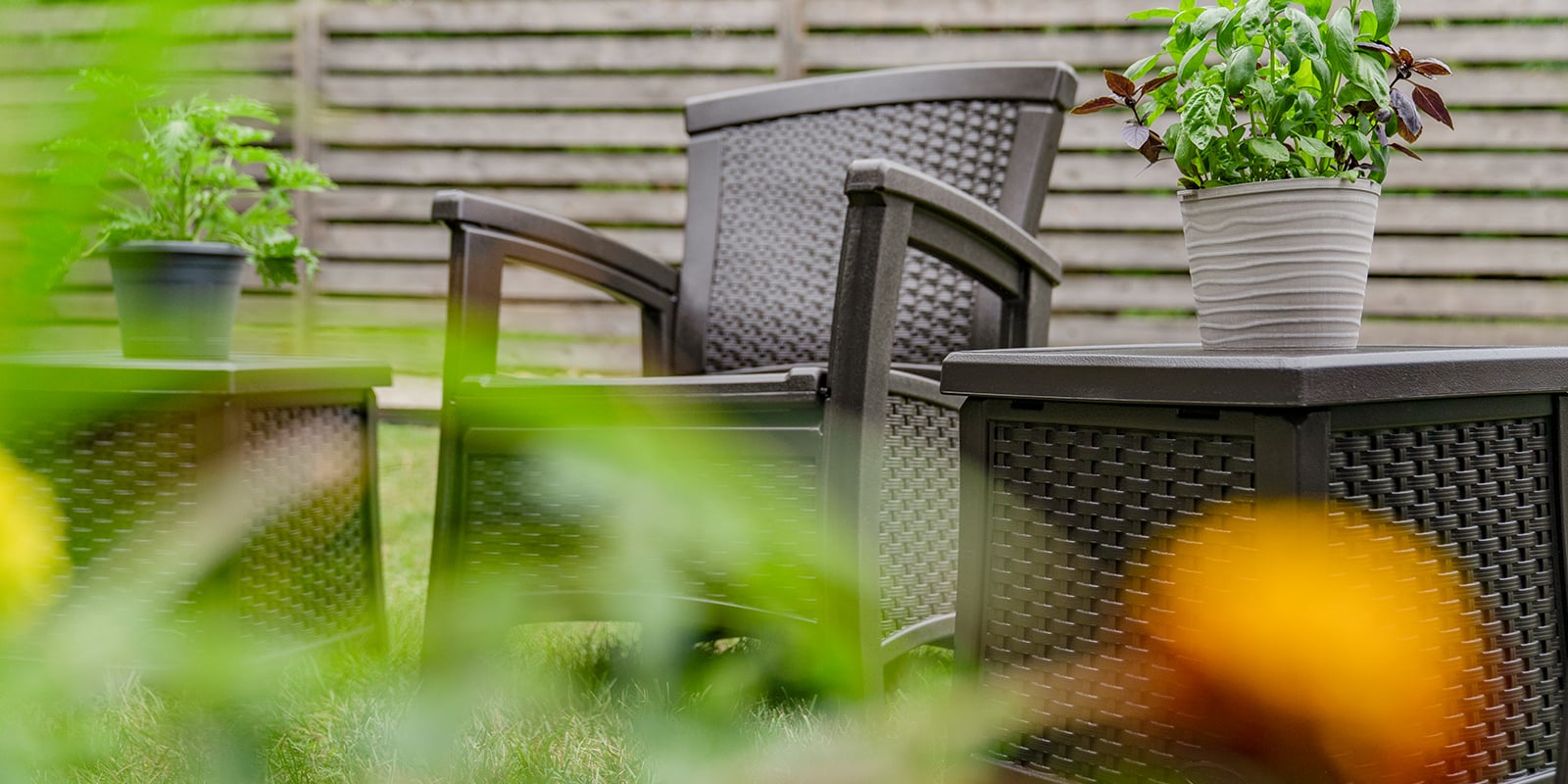
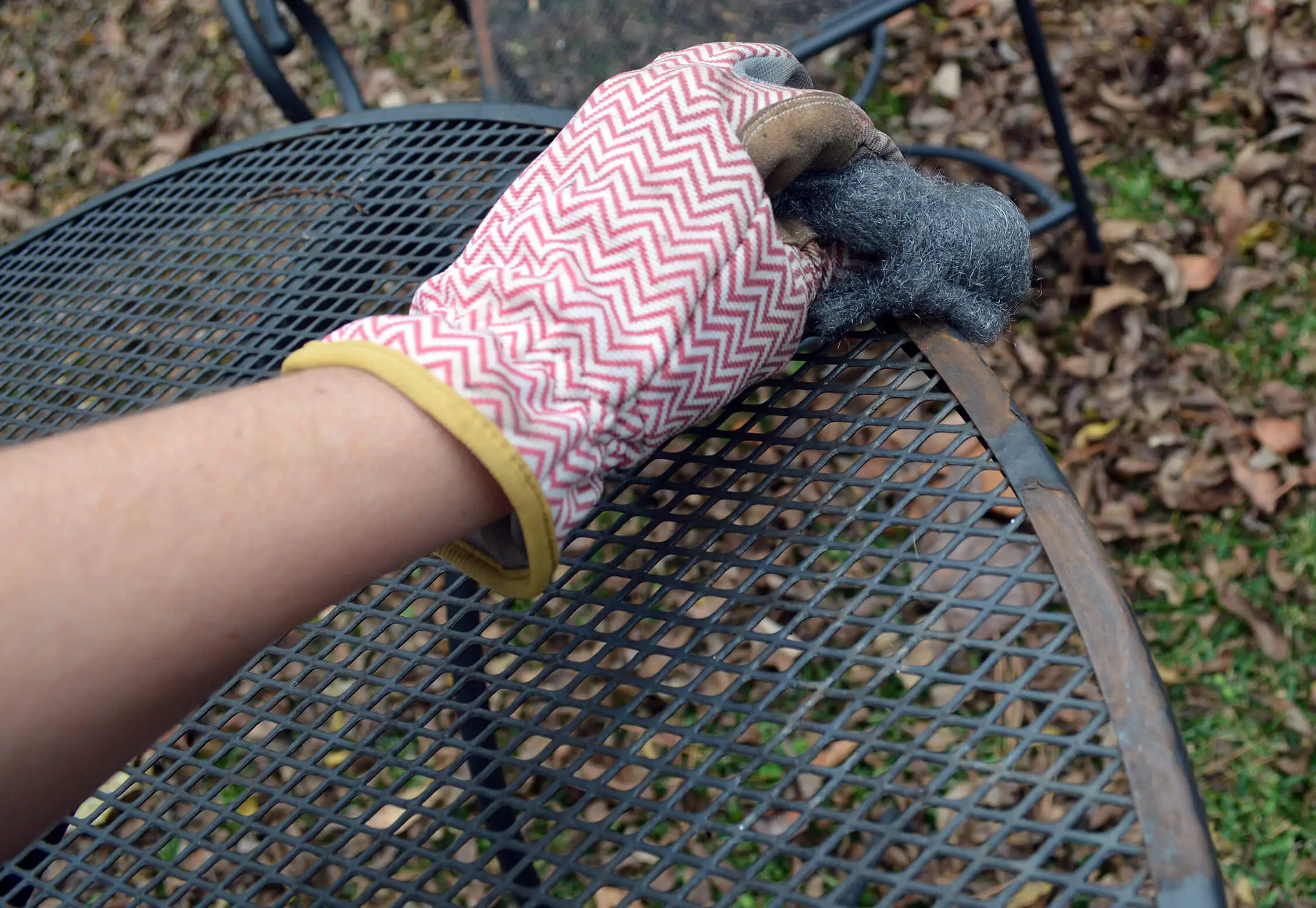
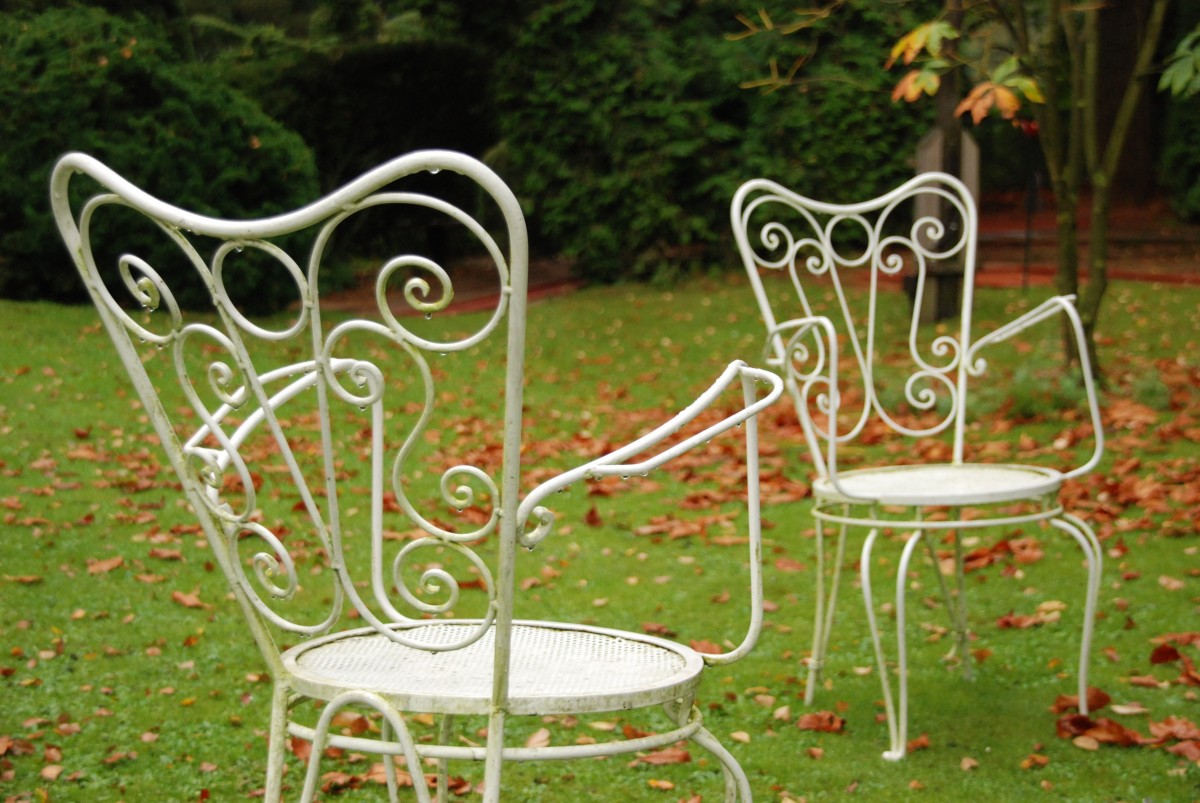
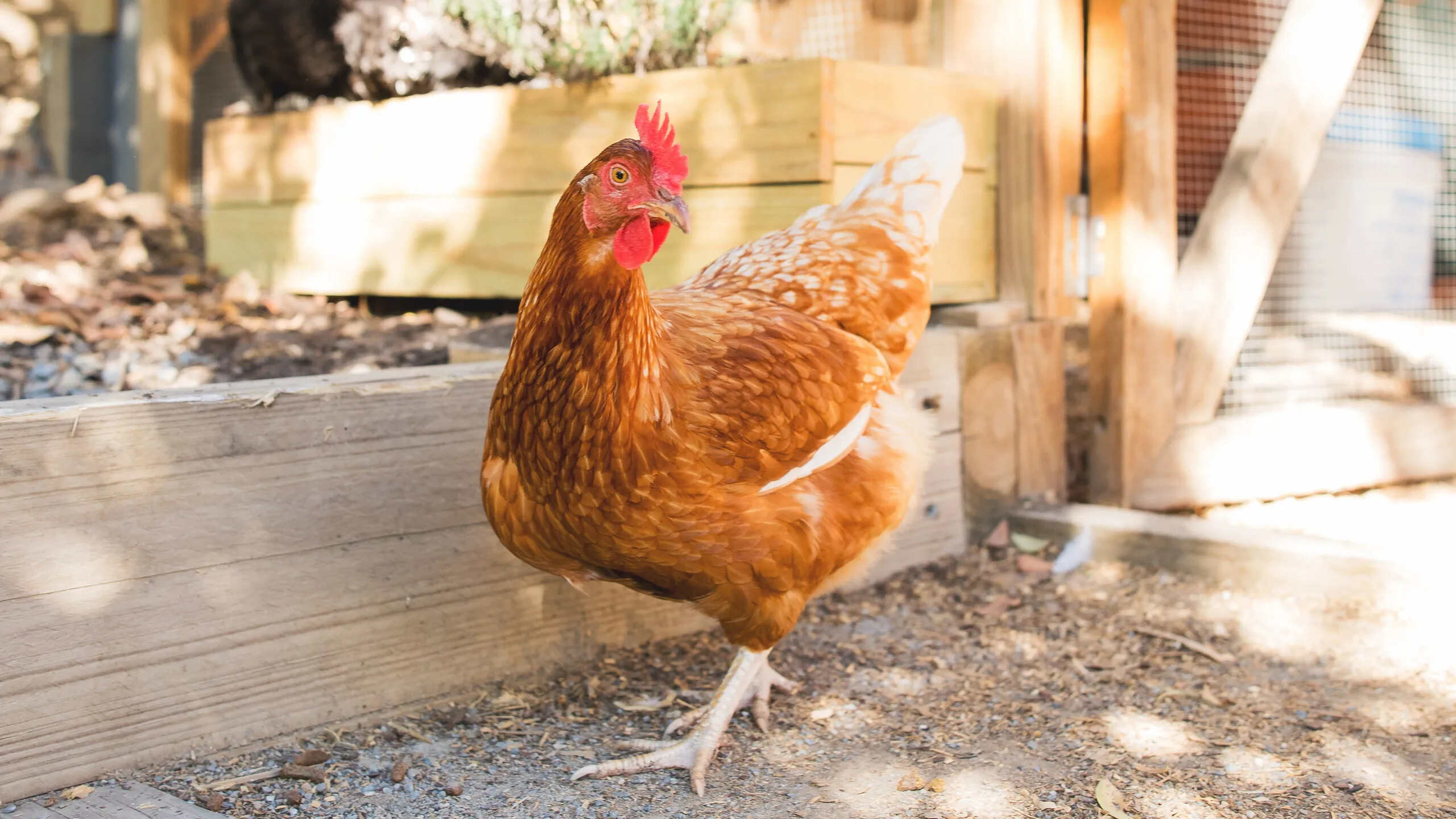


0 thoughts on “How To Keep Ants Off Of Patio Furniture”